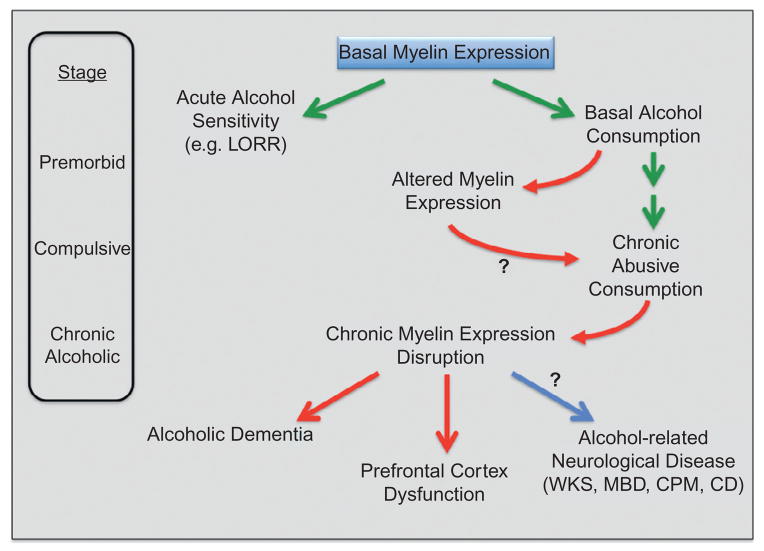Fig. 10.2.
Hypothetic scheme for the role of myelin in alcoholism and alcohol-related neurologic disorders. Basal myelin expression is pictured as affecting initial sensitivity to alcohol, such as with loss-of-righting reflex (LORR), and perhaps relatedly, alcohol consumption. Acute alcohol, however, also alters myelin gene expression, which may contribute to frontal-lobe dysfunction and the consequent development of abusive alcohol consumption. Chronic alcohol exposure produces prominent decreases in myelin gene expression and myelin structural abnormalities. These are envisioned as contributing to frontal-lobe dysfunction in alcoholism and alcoholic dementia. Additionally, alcohol-induced myelin pathology may contribute as a risk factor to other alcohol-related neurologic diseases, such as Wernicke–Korsakoff’s syndrome (WKS), Machiafava–Bignami disease (MBD), central pontine myelinolysis (CPM), and cerebellar degeneration (CD).

